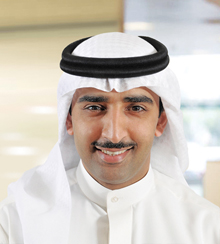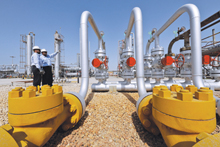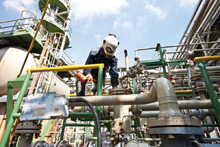
 Dr Sheikh Mohamed ... Bahrain has the ability to meet its short-term gas demand
Dr Sheikh Mohamed ... Bahrain has the ability to meet its short-term gas demand
THE current demand-supply situation for gas consumption in Bahrain ranges between four and six per cent every year due to the increased development of residential areas and the expansion of major industrial companies. Gas continues to play an important role in Bahrain’s development and that of the region.
“I believe that as demand continues to increase, Noga will find a way for gas importation on a medium to long-term basis,” says Dr Sheikh Mohamed bin Khalifa Al Khalifa, the chief executive of Bahrain National Gas Company (Banagas).
“Bahrain has the ability to meet its short-term gas demand. Bahrain’s goal, however, is to acquire at least one billion standard cubic feet per day (bscfd) of gas beyond current production, and is pursuing a multi-pronged approach toward this end. The National Oil and Gas Authority (Noga) signed an MoU with American energy company Hesscorp in October 2008 to study the feasibility of building an LNG import/export terminal in order to acquire enough gas to buildup and sustain an export oriented gas sector and meet future petrochemical industry requirements,” Dr Sheikh Mohamed says in an exclusive interview with OGN. Excerpts:
How were the operational and financial results for Banagas 2013? Please give the company’s current turnover, profits and revenue earned in 2013 and what is the market outlook for 2014?
The operational and financial performance of Banagas in 2013 was excellent with key performance indicators either met or exceeded. During the year, total production reached 182,075 metric tonnes with all propane, butane and naphtha produces exported. Financial results were highly satisfactory with net sales revenue of $284 million achieved and profits exceeding forecast.
What is the latest progress update on Banagas’ current and future gas projects? What were the new projects/contracts signed during the year? Please give details.
The largest project which we commissioned in 2013 was Compressor Station 9, providing additional compression capacity of 60 million standard cubic feet per day (mscfd) at a total cost of $43 million. In addition, we constructed a new central control room and successfully migrated our Central Gas Plant (CGP) II control system. Work is well in progress to convert our CGP I control system to DCS which will also be migrated to the new control room.
We also hope by the first quarter of this year to have completed a debottlenecking project in the gas plant to improve plant performance and enable us to process additional quantities of refinery off gas.
We are also working with Tatweer Petroleum and nogaholding to assess the possibility of utilising the associated gas that is currently being reinjected into the reservoir to build a new gas plant in the near future.
What is your gas production and consumption forecast for the next five years for Bahrain?
Bahrain produces approximately 1.2 bscfd of natural gas plus 265 million scfd of residue gas produced from Banagas LPG plant which is consumed domestically, mostly for power generation. Bahrain should be able to meet their needs for fuel gas for the next 10 years.
What is the impact of gas shortages on Bahrain’s oil and gas sector? What is the latest development on plans to set up an LNG import/export terminal?
Bahrain has the ability to meet its short-term gas demand. Bahrain’s goal, however, is to acquire at least one bscfd of gas beyond current production, and is pursuing a multi-pronged approach toward this end. The National Oil and Gas Authority (Noga) signed an MoU with American energy company Hesscorp in October 2008 to study the feasibility of building an LNG import/export terminal in order to acquire enough gas to buildup and sustain an export oriented gas sector and meet future petrochemical industry requirements.
What national, regional and international recognition has Banagas received during the last year?
During 2013, the company achieved a record 9 million man-hours worked without a lost time accident since May 27, 2002. In recognition of our high standards of occupational safety the company received the International Safety Award with “Merit” from the British Safety Council, “Oil and Gas Sector” Award for Occupational Health and Safety from the Royal Society for the Prevention of Accidents, “Second Place Division I” Award, Gas Processing Association-USA, Silver “Stevie” Award for HSE programme of the year in Middle East and Africa and “Occupational Excellence Achievement” Award from National Safety Council of USA.
How does Banagas ensure quality in its operations? What have been your achievements in this regard?
The company has a well-trained and highly experienced workforce. Plant operating parameters are closely monitored with effective operating procedures in place complying with quality control requirements.
Assessors from the British Standards Institute carried out a successful continuation assessment during 2013 confirming the continued certification of the company’s Quality Management System to ISO9001-2000. Our internal audit processes, using a risk-based approach, continues to focus on strategic areas and to measure performance in order to ensure consistently high standards.
How is Banagas addressing environmental concerns associated with gas production?
As part of our obligation towards protecting the surrounding environment we have established an “Environment Compliance Plan 2012-15” to address all actions required to meet applicable environmental regulations.
As part of the plan a further two compressor stations were retrofitted with modified combustion liners. Modification has now been completed for all our stations resulting in an overall reduction of NOX emissions of over 40 per cent.
Also in line with the plan a modified weathering pit for Train 2 was placed in service. The company was rewarded with successful recertification to the environmental standard ISO 14001:2004 and a Silver “Stevie” Award for HSE programme of the year in the Middle East and Africa.
What role will Banagas be playing with Tatweer Petroleum?
We continue to work closely with Tatweer Petroleum to ensure an interrupted supply of associated gas which currently averages 300 mscfd. A well-established technical committee between both companies manages field operations and works together to avoid unplanned interruptions and synchronise maintenance work to avoid flaring or venting of gas.
We are currently working with Tatweer Petroleum and nogaholding on a feasibility and engineering study to access the utilisation of the associated gas that Tatweer Petroleum currently is injecting into the oil reservoir.
What is the future outlook for the gas sector in the Kingdom of Bahrain as the key element to further develop the industries in Bahrain?
The current demand – supply situation for gas consumption ranges between 4 to 6 per cent every year due to the increased development of residential areas and the expansion of major industrial companies. Gas continues to play an important role in Bahrain’s development and that of the region. I believe that as demand continues to increase, Noga will find a way for gas importation on a medium to long-term basis.
Banagas has been rated as an immensely successful company. What have been the factors that are responsible for that success? What national and international recognition has Banagas won during the last year?
Banagas’ business success criteria were laid down many years ago after we identified the key factors that we consider are responsible for our success. One of the most important is the unique culture adopted and represented by the Board of Directors and top and middle management. In Banagas, every employee believes in our core values, beliefs and our best practices.
We all work together to achieve our mission and vision by following a well thought out strategy which we have converted into focused business plans. I can honestly say that Banagas has succeeded in gaining the support of its employees to enhance our corporate culture and to achieve excellent performance levels.
What is Banagas’ master plan towards 2030?
Banagas has aligned its strategy to that of Bahrain’s Economic Vision 2030 which aims to shift the economy built on oil wealth to a productive, globally competitive economy, shaped by the government and driven by a pioneering private sector. As an operator engaged in gas processing, Banagas will continue its role but instead of dependence on Bahrain’s oil production, oil can be sourced from elsewhere and by-product gas used as feedstock by Banagas.
What has been the level of Bahrainisation achieved by Banagas? How does the company tackle the issue of shortage of qualified manpower in the oil and gas sector?
Our percentage of Bahrainisation is one of the highest in the oil and gas sector, with a record 92 per cent last year. In the meantime hiring and retaining qualified manpower in the oil and gas industry has become much more competitive due to the large number of projects worldwide and in the Gulf region in particular. The shortage of engineers and technical people have spurred the oil and gas sector to enhance development and training programmes, locally and externally.



















































































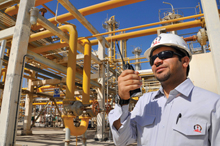
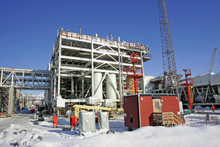
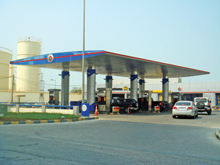
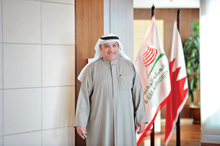
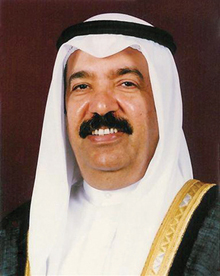
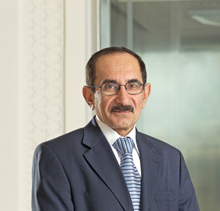
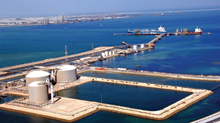
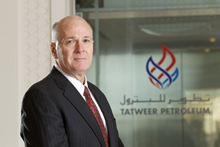
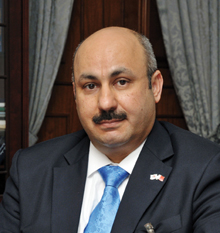
.jpg)
